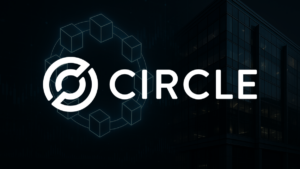TL;DR
- Circle, the company behind USDC, has applied for a U.S. national trust bank license to gain more control over its stablecoin reserves and to offer digital asset custody services for institutions.
- The move follows a successful IPO that valued the firm at nearly $18 billion.
- If approved, Circle would become only the second digital asset firm with this type of charter, after Anchorage Digital.
Circle, the company behind the USDC stablecoin, is seeking a national trust bank license from the U.S. Office of the Comptroller of the Currency. The new entity would be named First National Digital Currency Bank, N.A. and would allow Circle to self-custody its USDC reserves and offer crypto custody services to institutional clients. The application comes shortly after the firm’s IPO, which valued Circle at nearly $18 billion and pushed its stock up by over 115%. Analysts have praised the move as a sign of growing maturity in the stablecoin sector.
Self-Custody Strategy Gains Regulatory Ground
If granted, the trust charter would eliminate the need for third-party custodians like BNY Mellon and reduce reliance on asset managers such as BlackRock. Circle’s CEO Jeremy Allaire confirmed that some reserves will remain with traditional institutions, but the company plans to bring more of its reserve infrastructure in-house. This shift is expected to enhance efficiency and control over its dollar-pegged assets.
Beyond reserve management, the license would authorize Circle to provide secure custody services for tokenized traditional assets. Unlike a conventional bank, the trust entity would not take deposits or issue loans. Instead, it would focus on providing blockchain-native financial infrastructure in compliance with U.S. law. Circle’s goal is to become a foundational layer for regulated digital finance, offering trusted services that meet institutional standards and build investor confidence.

Legislative Developments Align With Circle’s Move
The timing of the application aligns with increasing federal momentum toward stablecoin regulation. A new bill moving through Congress requires that stablecoins be fully backed by liquid assets, with monthly disclosures. If passed, the legislation could improve transparency and encourage wider adoption of stablecoins among financial institutions and merchants.
Circle has also strengthened its regulatory profile internationally, gaining licenses in New York, Europe, and Abu Dhabi. This broad compliance footprint complements its U.S. trust bank ambitions and strengthens its bid to become the go-to partner for institutional crypto infrastructure.
By applying for a national trust bank charter, Circle is positioning itself as a long-term player focused on regulatory clarity, security, innovation, and growth within the evolving digital finance ecosystem. The move could help define future standards for stablecoin issuers worldwide.










